Why Backup Power Is Essential in Every Event
Why Backup Power Is Essential in Every Event – Ensure Uninterrupted Success with Peak Audio
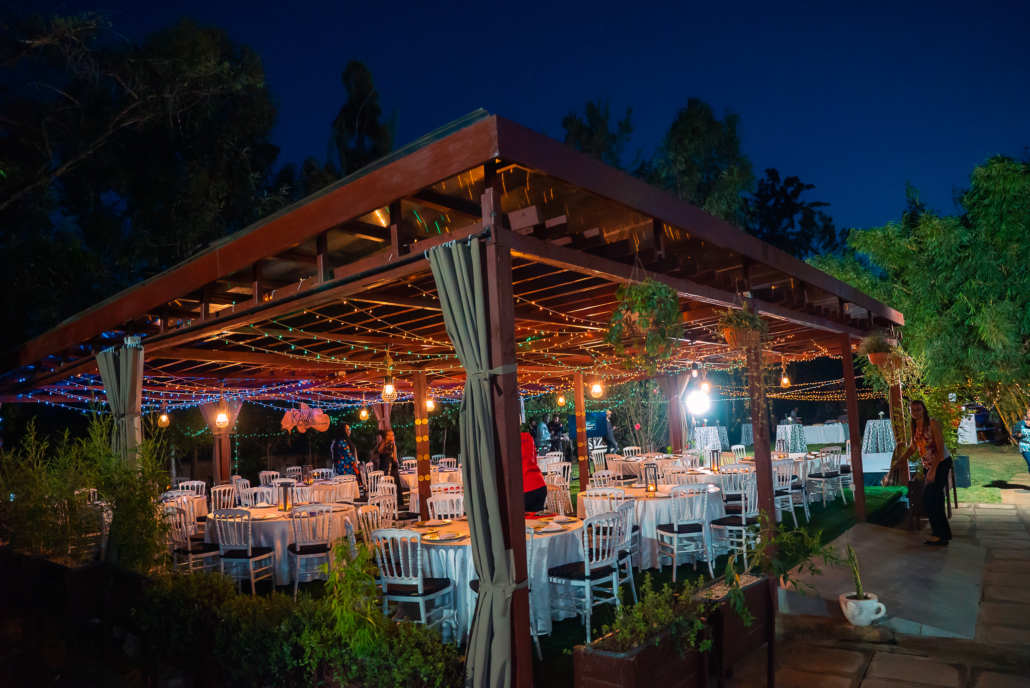
Why Backup Power Is Essential in Every Event
In today’s modern events, electricity is more than just a convenience—it’s the foundation. From lighting up the venue to powering microphones, screens, DJ booths, and even catering equipment, a reliable power supply ensures everything runs smoothly. Whether it’s a corporate conference, wedding, or school event, every element depends on a consistent flow of power to keep the experience engaging and professional.
But imagine the lights going out in the middle of a keynote speech or the music stopping abruptly during a wedding reception. Such disruptions not only ruin the atmosphere but can damage reputations and derail carefully planned schedules. Power outages are unpredictable, and without a reliable backup solution, your entire event could grind to a halt in seconds.
That’s why Peak Audio goes beyond simply providing world-class audio-visual setups. We understand what’s at stake and offer dependable backup power options to guarantee uninterrupted performance. Whether indoors or off-grid, we ensure your event goes on without a hitch—because every moment counts.
1. The Importance of Power in Event Execution
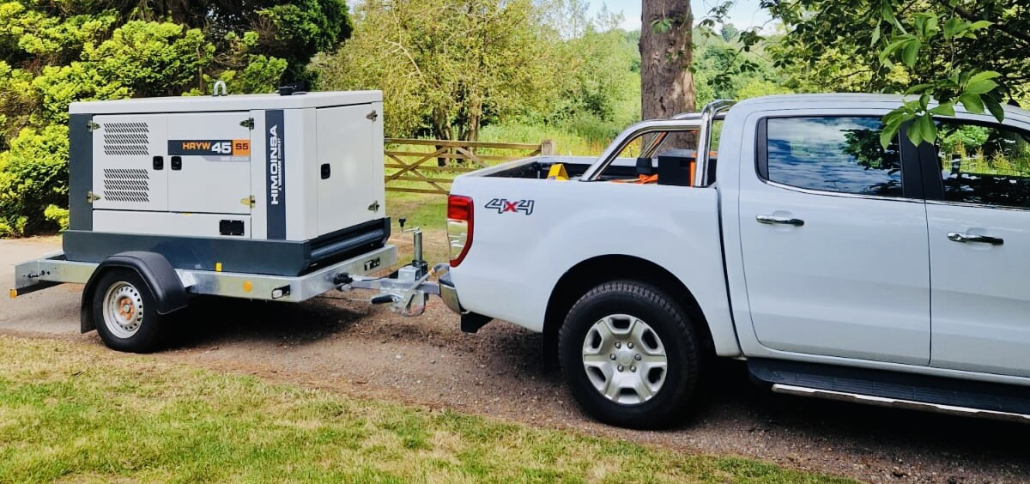
Why Backup Power Is Essential in Every Event
Power is the invisible backbone of every successful event. From lighting and sound to video displays and internet connectivity, almost every component of a modern event depends on a reliable power supply. Whether you’re hosting a wedding in the countryside, a high-profile conference in Nairobi, or a hybrid summit with live-streamed sessions, power reliability can make or break the experience for your guests, presenters, and remote audiences.
Here’s why power is one of the most critical elements in event planning and execution.
1.1 Events Rely on Electricity for Sound, Lighting, Video, Entertainment, and More
-
Sound Systems:
Every microphone, speaker, mixer, and amplifier requires uninterrupted power. Even a brief outage can cause distortion, mic dropouts, or total silence during a key speech, performance, or announcement. Events with multiple speakers or entertainment segments depend on consistent amplification to reach the entire audience clearly. -
Lighting Equipment:
From basic venue lighting to advanced mood-setting uplights, moving heads, and intelligent lighting setups, all of it draws power. A lighting blackout during a keynote speech or wedding dance moment can disrupt flow and dampen the atmosphere. -
Video and Visual Displays:
LED screens, projectors, laptops, video switchers, and monitors are all electricity-dependent. Without stable power, screens may flicker or shut down, causing interruptions in presentations, branding visuals, or streaming feeds. This is especially critical for corporate events or expos that rely heavily on visual communication. -
Entertainment Gear and Supporting Devices:
DJs, bands, photo booths, digital check-in systems, catering warmers, and even event registration tablets need power. A well-powered event ensures that every detail—from background music to food temperature—is just right.
1.2 Power Interruptions Can Lead to Major Disruptions
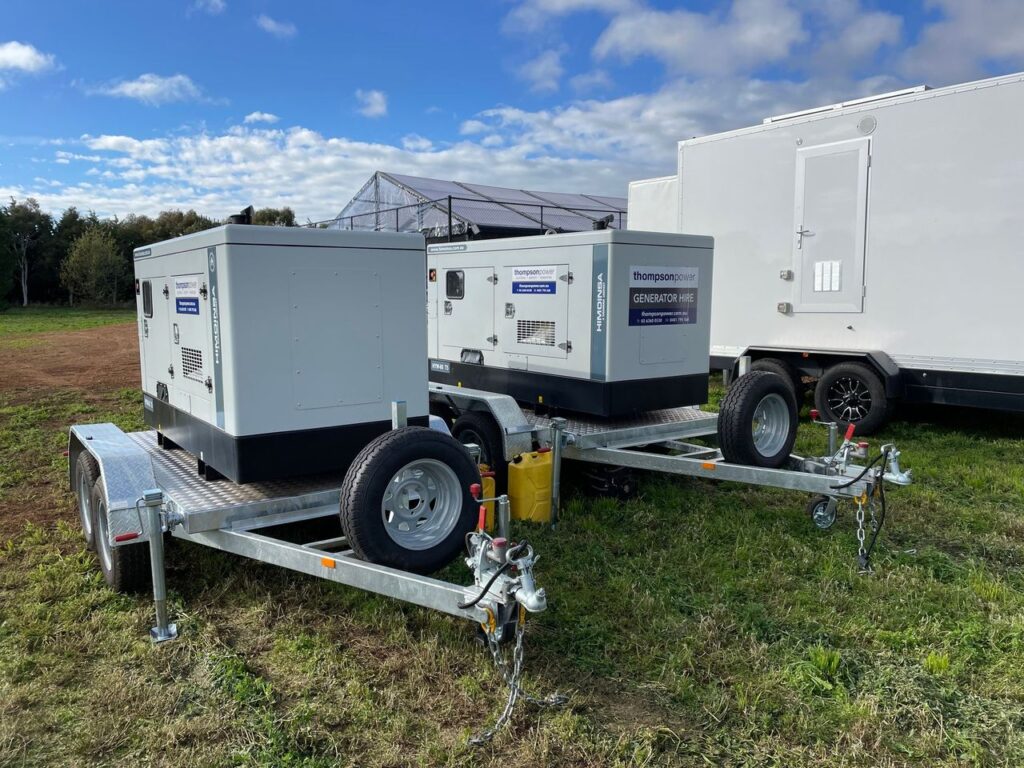
Why Backup Power Is Essential in Every Event
-
Uninterrupted flow is essential for guest satisfaction and professionalism.
Power outages, even momentary, can cause:-
Speeches and presentations to cut off
-
Screens to reboot or freeze
-
Live feeds to drop offline
-
Sound systems to go silent
-
Catering services to delay due to loss of heating or refrigeration
These technical failures aren’t just embarrassing—they reduce the credibility of the event host and can affect brand image, especially for business events or sponsored functions.
-
-
Stage delays and restarts cost time and impact momentum.
When a presentation or performance is interrupted due to power loss, restarting systems (like mixers, projectors, or laptops) takes time. In tightly timed programs like conferences, weddings, or broadcasted events, this delay can throw off the entire schedule and stress both organizers and attendees. -
Guest frustration increases when backup plans aren’t in place.
Guests don’t expect to see technicians scrambling for power cords or restarting devices mid-event. If your event lacks sufficient backup power plans, it shows a lack of preparedness and professionalism.
1.3 For Virtual or Hybrid Events, Internet Routers and Streaming Gear Depend Entirely on Power Stability
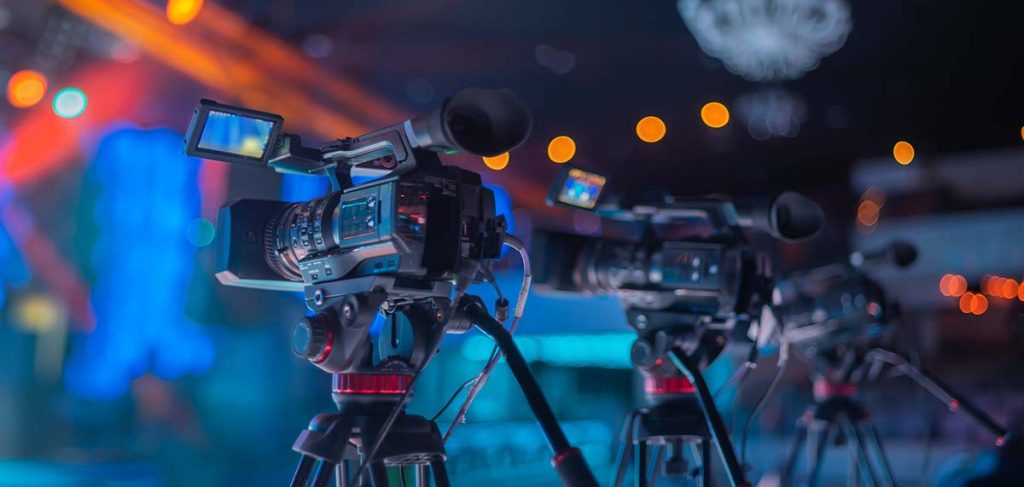
Why Backup Power Is Essential in Every Event
-
Virtual attendance depends on consistent internet and camera feeds.
In today’s era of hybrid and fully virtual events, uninterrupted internet is just as critical as sound and video. Your entire streaming setup—from cameras and switchers to encoding laptops and routers—must stay online throughout the event. A single power cut can end the broadcast or result in lost footage. -
Routers, laptops, and live stream encoders are vulnerable to even momentary outages.
Unlike analog systems, most virtual event gear doesn’t have built-in power buffers. Without a stable power source or UPS (Uninterruptible Power Supply), they shut down instantly—leading to:-
Frozen livestreams
-
Cut Zoom calls
-
Broken YouTube/Facebook links
-
Unrecoverable files
-
-
Streaming outages hurt global participation and sponsor value.
For hybrid conferences, webinars, or donor-funded programs, losing the online audience can mean lost engagement, poor feedback, and diminished ROI. Event planners must ensure redundant power supplies for every component of the virtual setup.
Power is not just a background requirement—it is the foundation of every audio-visual experience. Without stable electricity, even the most beautiful venue or experienced speaker can’t deliver their message. From critical lighting and sound gear to delicate virtual infrastructure, everything hinges on proper power planning. At Peak Audio, we help clients plan robust power systems for their events, complete with backup generators, surge protection, UPS systems, and energy-efficient setups. Whether your event is indoor or outdoor, physical or hybrid, we ensure your power never fails—so your event doesn’t either.
2. What Causes Power Failures at Events in Kenya?
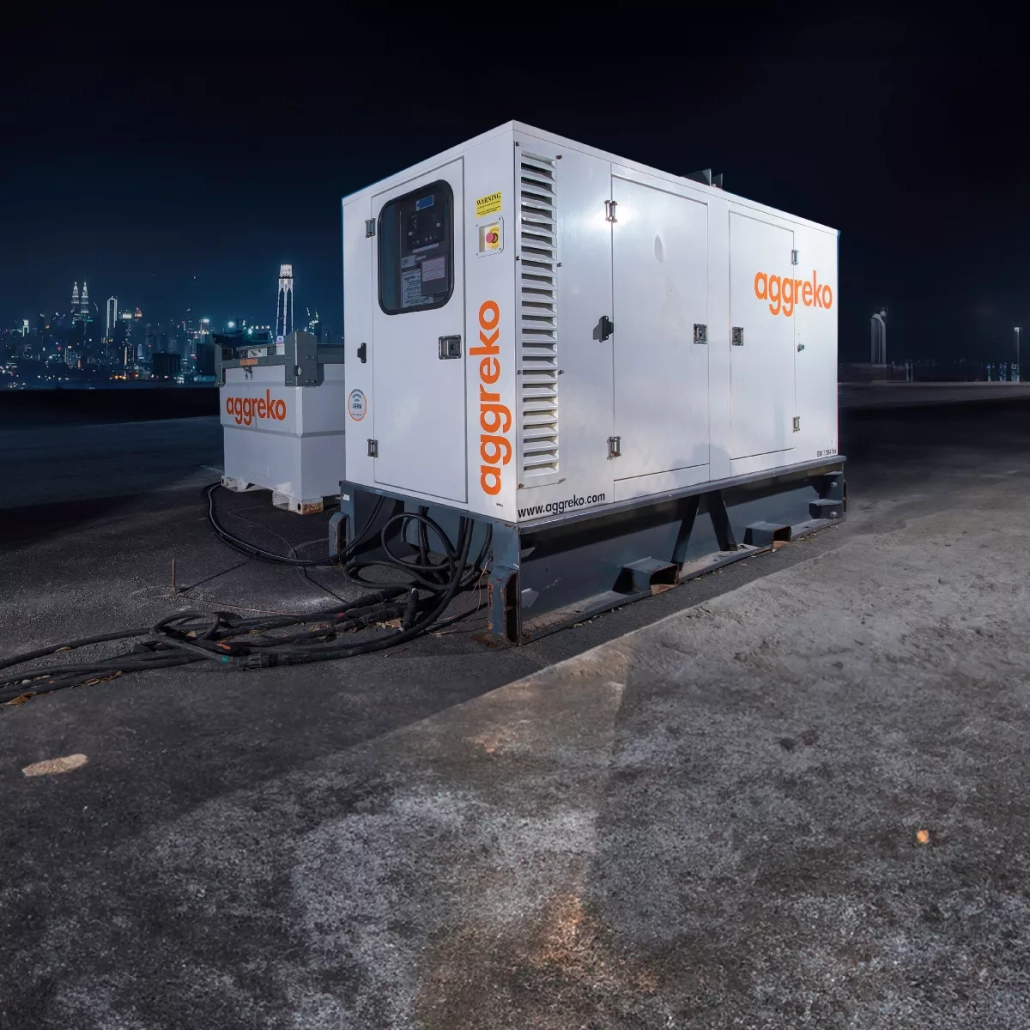
Why Backup Power Is Essential in Every Event
Power interruptions are among the most disruptive challenges any event organizer can face. From halting a keynote speech to blacking out an entire wedding reception, the impact of a power failure can be both immediate and disastrous. In Kenya, power-related disruptions are particularly common due to a combination of environmental, infrastructural, and human factors. Understanding these causes is the first step to preventing them—and ensuring your event runs smoothly from start to finish.
2.1 Grid Unreliability in Some Locations, Especially Outdoor Venues and Rural Areas
-
Kenya’s power infrastructure varies widely in reliability depending on the location.
While urban areas like Nairobi and Mombasa benefit from more stable grid connectivity, many semi-urban and rural venues suffer from frequent outages, low voltage, or intermittent supply. This is especially true for event spaces located on the outskirts or in nature-based locations like farms, beaches, or gardens. -
Outdoor events often rely on temporary hookups, which are risk-prone.
In some cases, venues may connect to nearby buildings or use long cable runs from the nearest power source. These improvised connections can be unstable, lack grounding, or draw insufficient amperage for the event’s needs. -
Peak usage times increase vulnerability.
Events held during national holidays, election seasons, or community festivals may experience grid strain due to simultaneous high energy demands across surrounding areas, leading to random blackouts. -
Solution: For such areas, professional AV companies like Peak Audio always recommend backup generators or hybrid solar setups with battery storage as part of the event power plan.
2.2 Weather Disruptions: Rain, Wind, and Lightning Can Knock Out Supply Lines
-
Kenya’s tropical climate can bring sudden weather changes that damage power lines.
Flash floods, strong winds, and lightning are common culprits—especially during the long rainy season (March–May) and short rains (October–November). These can cause trees to fall onto lines, transformers to blow, or substations to shut down. -
Outdoor setups are particularly vulnerable.
Power lines or cable connections exposed to the elements can be shorted out by rainwater or blown loose by strong gusts. Without proper shielding, this creates both a safety hazard and risk of failure. -
High humidity and wet grounds affect electrical conductivity.
Even when the rain has stopped, wet grass or mud can create grounding issues or delay setup due to the risk of shock and damage to sensitive equipment like amplifiers, LED screens, or laptops. -
Solution: Weatherproof cabling, elevated risers, and rain-protected power sources are essential. Experienced crews prepare for weather risks with covered generator stations and flexible backup plans.
2.3 Overloaded Circuits and Poorly Designed Power Layouts
-
One of the most common causes of mid-event outages is overloaded circuits.
Events today rely on power-hungry equipment—LED walls, moving lights, subwoofers, projectors, cameras, and catering appliances—all drawing from the same limited power sources. If the layout isn’t calculated properly, the circuits can trip repeatedly or blow out entirely. -
Amateur setups often fail to balance power distribution.
Plugging all devices into one or two sockets using low-quality extension cables can create dangerous overloads. Without a professional load assessment, many organizers underestimate the cumulative wattage being used across the event. -
Inadequate grounding and circuit protection add risk.
When power layouts lack surge protectors or earth connections, voltage fluctuations can cause irreparable damage to expensive gear and even pose fire hazards. -
Solution: Peak Audio uses calibrated load calculators and power distribution units (PDUs) to ensure each gear segment is safely powered, with circuit isolation for critical systems like sound and lighting.
2.4 Human Error: Unplugged Cables or Untested Setups
-
Simple mistakes can cause large-scale disruptions.
Accidental disconnections, loose plug connections, tripping over cables, or powering on devices in the wrong sequence can trigger outages or equipment failure. -
Lack of pre-event testing is a leading cause of preventable failure.
In many cases, events begin without a full dry run—meaning cabling, speakers, projectors, or live-streaming gear isn’t fully powered and tested under load. This increases the chance of unnoticed faults becoming critical once guests arrive. -
Improper backup switching leads to long downtime.
Some crews may have generators but don’t test automatic transfer switches (ATS) or fuel levels before the event. When the power fails, the delay in manual switching—or failure of the generator to start—results in major interruptions. -
Solution: A competent AV team conducts full pre-event walkthroughs, gear testing, and cable tracing. During the event, cables are secured with covers or taped to the floor, and dedicated staff monitor power conditions in real-time.
Power failures at Kenyan events are often caused by a combination of environmental factors, weak infrastructure, technical miscalculations, and human oversight. From rural grid outages and storm damage to overloaded circuits and simple mistakes, the risks are very real—but they are also preventable. With a seasoned technical partner like Peak Audio, every detail—from power design to weatherproofing and crew training—is handled with precision, ensuring your event stays on, lit, and live—no matter what challenges arise.
3. Types of Backup Power Solutions for Events in Kenya
No matter how well-organized your event is, a power outage can instantly disrupt everything—from sound and lighting to screens, livestreams, and venue operations. In Kenya, where power interruptions are not uncommon, having a reliable backup power plan is not just an option—it’s a necessity. Different events have different power needs, and the best solution often depends on location, event size, duration, and sensitivity of the equipment in use.
Below is a detailed look at the main types of backup power systems suitable for events in Kenya—and why Peak Audio always incorporates power contingency planning into our event support services.
3.1 Portable Generators
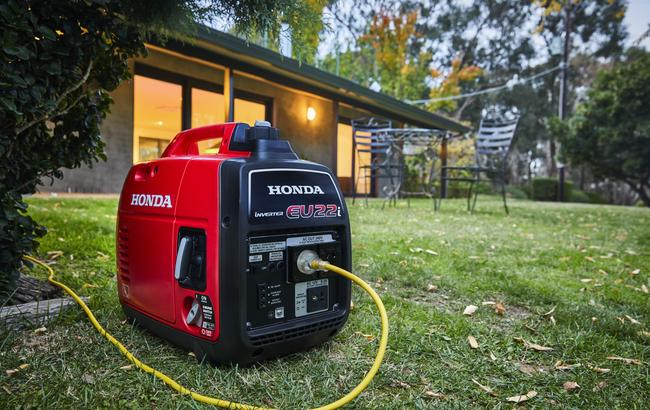
Why Backup Power Is Essential in Every Event
-
Diesel or petrol-powered generators are the most common and versatile backup power solution for events of all sizes.
They are especially essential for outdoor setups, rural venues, and large-scale productions that require sustained power for sound systems, lighting rigs, LED walls, and catering stations. Generators come in different capacities—from small 5kVA units for a single PA setup to 60kVA+ silent generators that can power an entire wedding or expo. -
They offer reliable, high-output performance for long durations.
Unlike battery systems that can deplete quickly under heavy load, generators can run as long as fuel is available. For overnight concerts, county expos, or multi-day NGO activations, this endurance is crucial. -
Silent generator options are ideal for audio-sensitive environments.
Traditional generators can be noisy and disruptive, especially for weddings or panel discussions. That’s why Peak Audio often recommends silent or super-silent diesel generators that deliver stable power with minimal sound output. -
Always paired with voltage regulators and surge protectors.
Peak Audio ensures that power from generators is passed through AVR units and stabilizers to prevent sudden voltage spikes that could damage delicate AV gear like digital mixers, projectors, or LED screens.
3.2 UPS (Uninterruptible Power Supply)

Why Backup Power Is Essential in Every Event
-
UPS units are designed for short-term, instant power supply—especially during brief outages or transitions.
Unlike generators that take seconds to start, a UPS kicks in immediately when power drops, ensuring no interruption to your critical equipment. This is essential for livestreaming, digital mixing, and stage control desks. -
They protect sensitive electronics from sudden shutdowns.
Projectors, audio mixers, media servers, and cameras can be damaged or experience data loss during abrupt power loss. A UPS allows them to shut down safely or continue running until the main power or generator kicks in. -
Used as a ‘first line of defense’ in professional event setups.
UPS systems aren’t meant to power entire events but serve as buffer systems to prevent downtime or protect fragile gear. They’re especially valuable in indoor corporate events, control rooms, and streaming booths. -
Comes in different capacities depending on the equipment load.
Smaller UPS units power laptops and routers, while larger rack-mounted UPS systems handle multiple pieces of AV gear simultaneously for events like webinars, hybrid conferences, and exhibitions.
3.3 Inverter Systems with Battery Backup
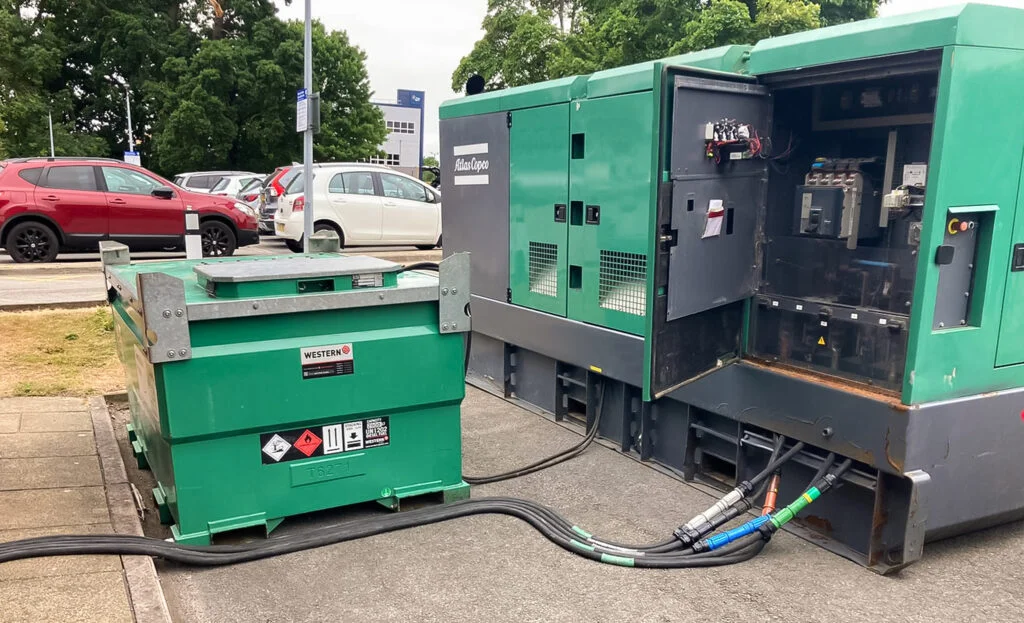
Why Backup Power Is Essential in Every Event
-
Inverter-battery systems are clean, quiet, and eco-friendly power backup options—perfect for weddings, corporate launches, or indoor ceremonies.
Unlike generators, they produce zero noise and no exhaust fumes, making them ideal for venues with sound or environmental restrictions. -
They automatically take over power without delay or flicker.
Modern inverter systems switch over instantly when main power fails, ensuring continuity without the need to restart equipment. This is particularly beneficial for LED lighting, speakers, and small projectors. -
They’re highly portable and scalable.
Whether you need a small 2kVA inverter for a home garden wedding or a larger 10kVA unit for a hotel ballroom, battery backups can be customized to suit your exact power draw. They’re also safe for use near guests and children due to the lack of fumes or flammable fuel. -
Can be paired with solar panels for full off-grid functionality.
For eco-conscious clients or remote outdoor venues, Peak Audio offers inverter systems that can be charged by solar panels during the day and run AV equipment through the evening.
3.4 Hybrid Power Setups
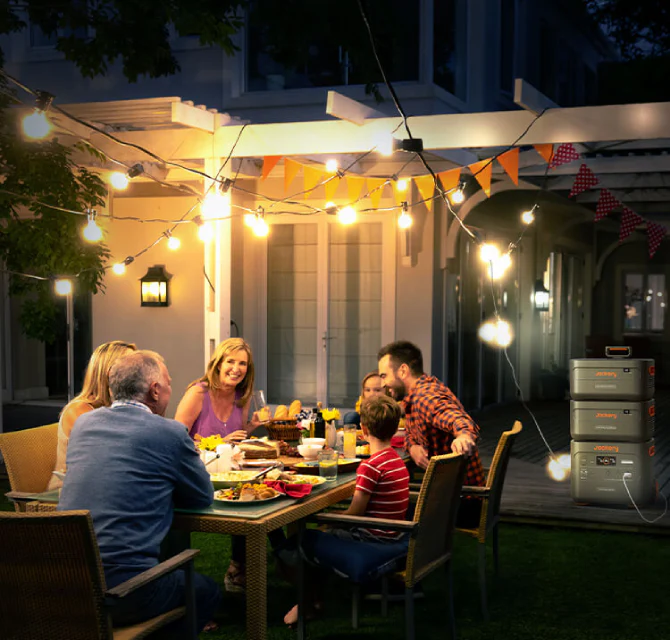
Why Backup Power Is Essential in Every Event
-
Hybrid solutions combine generators, inverters, UPS systems, and solar power to create a layered, ultra-reliable power plan.
This model is particularly ideal for large or high-stakes events such as international summits, livestreamed conferences, or multi-day concerts—where power stability is non-negotiable. -
Each layer covers different risk points and durations.
For example:-
The UPS handles instant transition.
-
The inverter maintains silence during speeches.
-
The generator kicks in for sustained power when loads increase.
-
Solar panels charge batteries during the day for green energy offset.
-
-
Ensures seamless continuity even if one system fails.
Redundancy is key in professional events. A hybrid setup ensures there’s always a Plan B (and even a Plan C) in place—so no matter the situation, your event remains uninterrupted. -
Peak Audio provides custom hybrid setups tailored to venue access, power demands, and sustainability preferences.
Our team performs pre-event site surveys to determine what combination of systems will best protect your event’s AV performance.
Power disruptions are a real threat to event success in Kenya, but with the right backup systems in place, your show can go on without a hitch. Whether you need the robust strength of a generator, the instant protection of a UPS, the quiet confidence of an inverter, or a hybrid system combining them all, Peak Audio has the expertise and equipment to safeguard your event from power-related failures. Let us help you design a power plan that fits your scale, location, and audience expectations—so you can focus on creating unforgettable moments, not worrying about blackouts.
4. Events That Absolutely Need Backup Power
In any well-organized event, power continuity is non-negotiable. While some small casual meetups might get by without a contingency plan, most formal, high-profile, or large-scale events in Kenya simply can’t afford a blackout—even for a few seconds. Power outages can disrupt presentations, ruin moments, affect safety, and damage your event’s reputation. That’s why backup power isn’t just a technical consideration—it’s an essential part of your event strategy.
Here’s a closer look at event types where backup power is a must.
4.1 Weddings – Avoid Killing the Vibe During Vows, Speeches, or the Dance Floor Moment
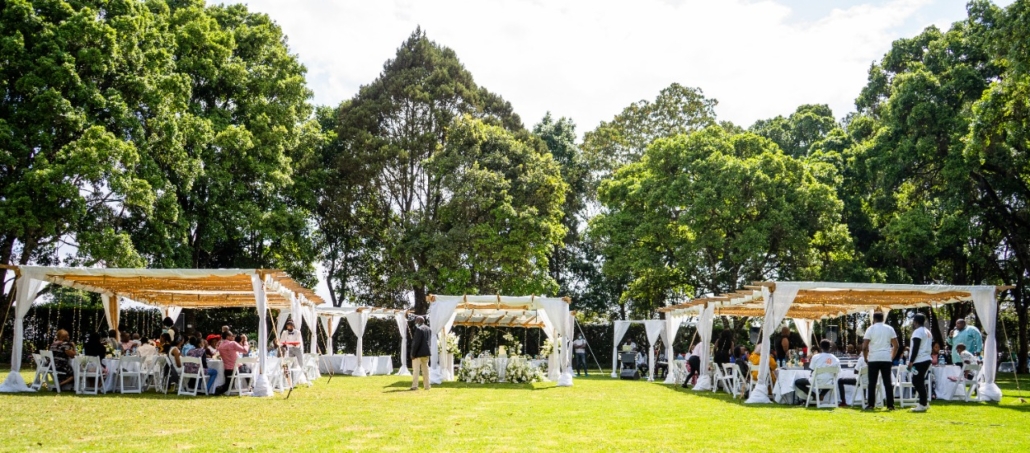
Why Backup Power Is Essential in Every Event
-
Weddings are emotional, once-in-a-lifetime moments—and power interruptions can instantly break the magic.
Imagine the music cutting during the bride’s entrance, the microphone going silent during heartfelt vows, or the power dying right as the dance floor gets packed. These aren’t just technical issues—they’re mood breakers that can stain memories. -
Lighting plays a key role in ambiance and photography.
From ambient garden lighting to decorative uplights, chandeliers, and DJ booths, modern weddings depend heavily on powered setups. Backup power ensures consistent mood lighting throughout the ceremony and reception. -
Live bands, DJs, and MCs rely on steady power.
A silent speaker or crashed controller kills energy instantly. Generators or inverter backups keep the program flowing even if main power cuts out. -
Photographers, videographers, and livestream teams also need power.
Without stable power, batteries drain faster, footage is lost, and coverage suffers. Power continuity means better documentation and a better guest experience.
4.2 Corporate Events – Presentations, Virtual Calls, and Brand Launches Demand Power Reliability
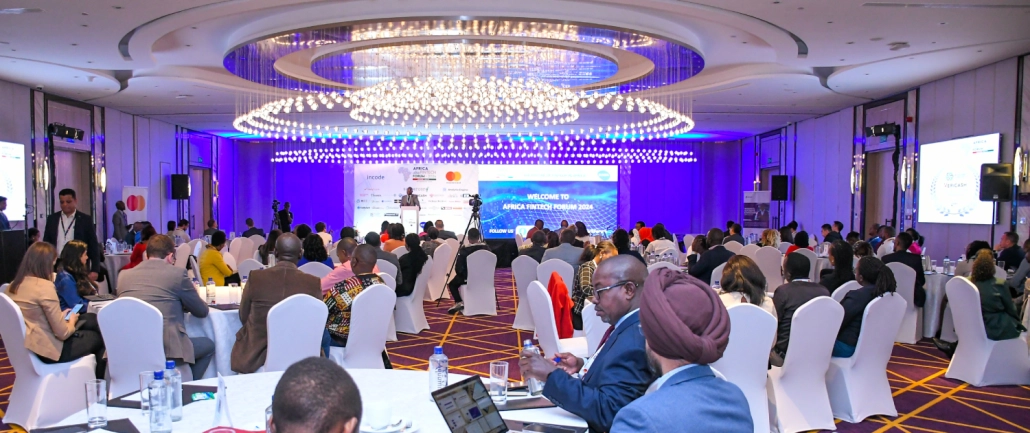
Why Backup Power Is Essential in Every Event
-
Power loss during a product launch, board presentation, or AGM damages credibility.
When your brand is on the line, technical interruptions are not just embarrassing—they can cost business, undermine leadership, and create long-term reputational damage. -
Corporate AV setups rely on projectors, microphones, screens, and lighting—all of which need stable power.
Most conference halls or boardrooms don’t have dedicated backup solutions, so bringing your own is essential. A power drop during a keynote, panel discussion, or announcement can derail the entire agenda. -
Remote participants, hybrid panels, or livestreams raise the stakes.
In the post-COVID era, many corporate events rely on global audiences tuning in remotely. Backup power ensures your Zoom call or Microsoft Teams session doesn’t crash mid-presentation. -
Presenters need confidence that their environment is stable.
Backup power provides peace of mind to speakers, organizers, and attendees alike—enabling focused, productive, and seamless events.
4.3 Live Concerts and Festivals – Even a Few Seconds of Silence Can Lose a Crowd
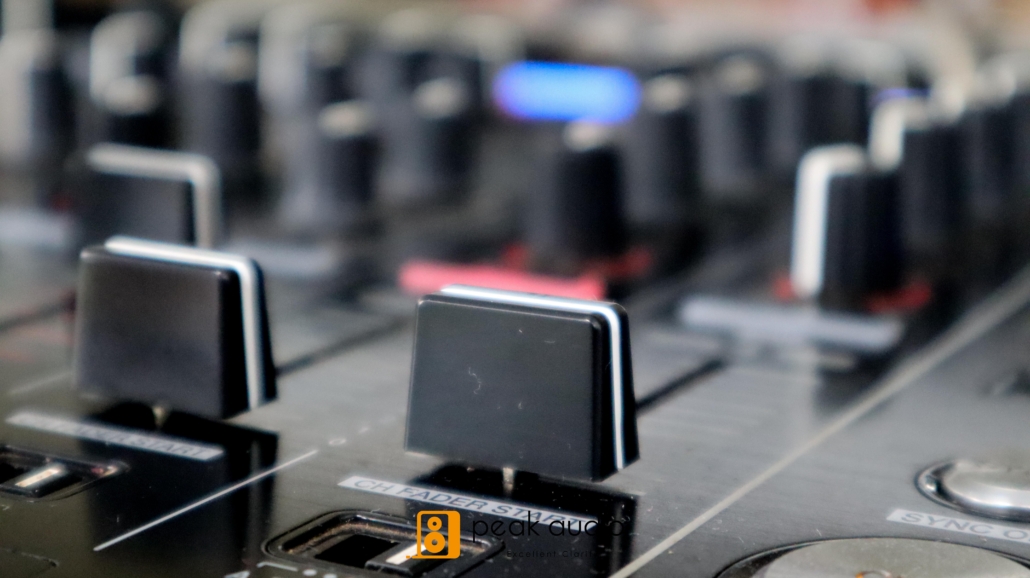
Why Backup Power Is Essential in Every Event
-
Entertainment events are built around sound, lights, and timing—and power is the backbone.
A power outage during a chorus drop, DJ mix, or artist performance can lose a crowd in seconds. Recovery is difficult, and the moment is often lost for good. -
Outdoor concerts require high-capacity, off-grid power solutions.
Most festival grounds or open-air spaces do not have reliable electricity access. Generators, inverters, and hybrid solutions are the only way to guarantee uninterrupted performance and safety. -
Lighting design and special effects are also power-dependent.
From stage washes and beam lights to LED video walls, strobes, and fog machines, everything needs juice. Sudden darkness can pose a hazard to both artists and attendees. -
Vendors, stalls, and security teams depend on backup power too.
At large events, food vendors, point-of-sale machines, and even emergency response units need stable electricity. A blackout impacts more than just the stage—it affects the whole event ecosystem.
4.4 Virtual/Hybrid Events – Streaming Breakdowns Damage Your Brand and Attendee Trust

Why Backup Power Is Essential in Every Event
-
Streaming platforms are unforgiving when it comes to power outages.
Even a 30-second interruption can cause attendees to drop off, disrupt recordings, and break the flow of keynotes, breakout sessions, or panel discussions. -
Livestreaming setups require continuous power across multiple devices.
This includes cameras, laptops, switchers, encoders, lighting, internet routers, and monitors. A failure in any link breaks the entire experience. -
Online viewers expect the same level of professionalism as in-person guests.
If your stream cuts out mid-session or stalls with buffering, it reflects poorly on your event’s planning and production quality. -
Power continuity also protects your data and recordings.
Whether you’re recording the event for future use or running a webinar with multiple feeds, backup systems ensure files aren’t lost and transitions remain seamless.
4.5 Conferences and Exhibitions – Multi-Booth Setups and AV Systems Require a Strong Power Plan

Why Backup Power Is Essential in Every Event
-
Large-scale exhibitions and conferences are often complex, multi-space events with numerous stakeholders.
Each exhibitor or sponsor may have their own booth setup with lighting, screens, sound, and promotional tools—all requiring power. -
A power failure affects multiple programs at once.
Unlike single-room events, a conference may have 5–10 rooms or booths operating simultaneously. Without a comprehensive backup plan, one failure could ripple across the entire event. -
Projectors, LED walls, simultaneous interpretation booths, and media stations all need uninterrupted power.
For international or regional summits, this is especially crucial—where multilingual sessions or remote speakers are involved. -
Exhibitor confidence depends on technical reliability.
Sponsors and vendors invest in your event expecting visibility and engagement. If power issues affect their branding or ability to engage visitors, you risk losing future partners and revenue.
Some events can survive a delay—but many cannot survive a blackout. Weddings, corporate launches, livestreamed panels, exhibitions, and concerts all demand uninterrupted power for emotional moments, professional delivery, and attendee satisfaction. With Kenya’s frequent power inconsistencies, the only way to protect your event’s quality and reputation is by planning backup power in advance. At Peak Audio, we help you identify risks, select the right backup systems, and deliver stable performance from start to finish—because when it comes to power, you only notice it when it’s gone.
5. The Cost of Not Having Backup Power at Your Event

Why Backup Power Is Essential in Every Event
While backup power may seem like an added line item on your event budget, failing to plan for power outages can lead to far greater losses—some of which can’t be recovered at all. In Kenya’s unpredictable power landscape, even a minor outage can snowball into a complete event failure, tarnishing your reputation and leaving you with steep financial and emotional consequences.
Let’s explore the real costs of not having reliable backup power in place.
5.1 Reputational Damage – Guests or Clients May See Your Brand as Unprofessional
-
Power failures are immediately noticeable—and they reflect poorly on the organizers.
Whether you’re hosting a wedding, corporate seminar, or product launch, a sudden blackout makes attendees question the professionalism and preparedness of your team. First impressions are lasting, and most guests will remember the disruption more than the event’s success. -
For brands and businesses, it can erode customer trust.
Imagine launching a new product, only for the screen to go blank mid-demo. Or streaming a high-stakes panel discussion and losing audio halfway through. These moments shape public perception, and damage to your brand’s image can linger long after the lights come back on. -
Reputational losses are hard to repair.
Word travels fast—especially with real-time social media coverage. A few frustrated tweets or videos of a failed event can quickly go viral and stain your company’s reputation for years. -
Event planners and vendors can also lose future contracts.
One power-related failure may lead to negative reviews, withheld payments, or being removed from preferred vendor lists. Reputation is everything in the events industry.
5.2 Financial Losses – Refunds, Penalties, Lost Bookings, or Wasted Equipment
-
Disruptions can lead to partial or full refunds.
If your event fails to deliver the promised experience due to a power outage, clients, sponsors, or ticket holders may demand refunds. For weddings or corporate events, even partial reimbursement can strain budgets significantly. -
You may incur penalties from vendors or venues.
Some venues and service providers include clauses requiring adequate power supply. If failure to provide that causes damage to gear or delays, you might be held financially liable. -
Lost future bookings are a hidden but serious cost.
A failed event won’t just hurt your current client—it may prevent repeat bookings, referrals, or partnership renewals. If a brand’s product launch flops due to AV failure, they likely won’t work with you again. -
Hired equipment and labor may go to waste.
From stage rentals and décor to DJ setups and catering, every component has been paid for. Without power, these elements remain unused or underutilized—burning budget with zero return.
5.3 Safety Risks – Emergency Lighting, Exit Signs, and Security Cameras May Fail
-
Lack of backup power can create dangerous conditions for guests.
Events often take place in dimly lit or complex venues. If power cuts out, guests may be left in darkness without functioning emergency lights, clearly marked exits, or audible instructions. -
In crowded environments, this can lead to panic or injury.
A sudden blackout at a concert, wedding, or exhibition can trigger confusion, crowd surges, or even stampedes—especially if exits and communication lines fail simultaneously. -
Security systems depend on electricity.
CCTV cameras, access control systems, metal detectors, and perimeter lights all require power. A power outage can leave the venue vulnerable to theft, trespassing, or loss of crowd control. -
Medical emergencies become harder to manage.
If lighting or communication tools are down during a health crisis, response times are delayed—and consequences can be severe.
5.4 Wasted Investments in Décor, Entertainment, and AV Gear That Never Gets Used
-
Event setups involve weeks of planning and significant financial investment.
Décor teams, florists, furniture rentals, lighting specialists, sound engineers, and caterers all contribute to creating the perfect environment. If your event loses power, all those aesthetic and functional investments go to waste. -
Entertainment without power is ineffective.
Musicians can’t perform, DJs can’t play, projectors can’t run slideshows, and photographers can’t edit or print on-site without electricity. All those paid professionals and their gear become idle. -
Visual displays and branding elements don’t get seen.
LED screens, product demos, virtual booths, and sponsor advertisements remain blank when there’s no power to run them—meaning ROI for your partners disappears instantly. -
The audience’s experience suffers across the board.
Regardless of how beautiful the venue looks or how talented the performers are, if people can’t hear or see them due to power issues, the entire experience is compromised—and the investment, wasted.
The true cost of not having backup power goes beyond blacked-out rooms—it affects your finances, your relationships, your brand, and most importantly, your audience’s trust. From safety risks and wasted investments to damaged reputations and lost opportunities, the fallout from an unpowered event is massive. The solution? Don’t leave it to chance. Work with a partner like Peak Audio, who builds power reliability into every event strategy, ensuring that the only thing that surprises your guests is how smoothly everything runs.
6. How Peak Audio Integrates Backup Power in Event Planning
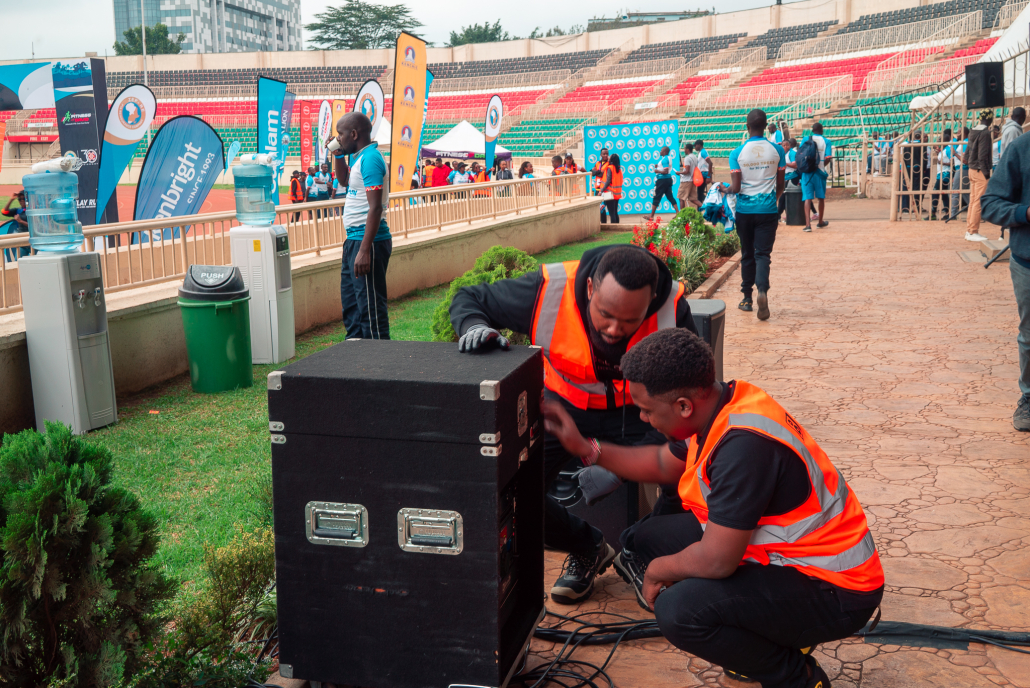
Why Backup Power Is Essential in Every Event
From your first conversation to the final applause, Peak Audio ensures that power contingency is seamlessly woven into your event’s technical blueprint. Our approach guarantees not just availability—but flawless integration—so that power never interrupts your event’s rhythm, atmosphere, or professionalism.
6.1 Site Inspection & Power Infrastructure Assessment
Every event begins with a meticulous on-site audit to evaluate your venue’s existing power capabilities and identify potential vulnerabilities.
-
Load capacity analysis:
We measure available power supply against expected demand from lighting, sound systems, screens, streaming gear, and equipment like air conditioning or catering setups. This detailed calculation ensures every device can operate simultaneously without overloading circuits. -
Infrastructure mapping:
Power panels, socket distribution, earthing points, and backup feed options are all logged. We identify whether the venue has dedicated event-grade power lines or if additional cabling will be needed to meet event demands. -
Power quality and stability testing:
Voltage stability is checked in person—assessing for sags, surges, or fluctuations that could damage sensitive equipment. This informs our need for surge protectors, AV-grade UPS units, or isolation transformers. -
Challenge identification:
We note limitations like single-phase power, absence of backup feeds, exposed cabling vulnerabilities, or noise-sensitive areas where generators may cause interference. These become key topics during planning.
6.2 Recommending & Sourcing the Right Backup Systems
With a clear understanding of your venue’s setup and your event’s power needs, we curate and source appropriate backup systems tailored to your event format.
-
Event-type optimization:
-
Weddings and indoor ceremonies benefit most from silent inverters and UPS systems for smooth transitions.
-
Outdoor concerts, festivals, and fairs rely heavily on diesel generators combined with surge protection.
-
Hybrid or livestreamed conferences require layered systems combining UPS, inverter, and generator redundancy.
-
-
Capacity planning and sourcing:
We size units appropriately— from compact 5kVA inverters to silent 30–60kVA generators—matching them to your precise gear needs. All equipment is sourced from trusted Kenyan suppliers who guarantee availability and maintenance support. -
Equipment selection criteria:
All backup systems are chosen for reliability, fuel efficiency, noise-level compliance with venue policies, and compatibility with sensitive AV components.
6.3 Seamless Integration into AV Setup
Backup power isn’t an afterthought—it’s designed to operate invisibly in the background of your event setup.
-
Cable routing & deployment:
Power cables from generators or inverters are laid to avoid trip hazards, snags, or interference. They are color-coded and secured to stay out of traffic and maintain venue aesthetics. -
Redundant connections:
Critical equipment—like control desks, LED screens, video switchers, and camera systems—is linked via dual feeds (main and backup). This allows instant switchover without touching AV levels or reconnecting anything during the event. -
Noise & vibration management:
Silent generators are installed with acoustic shielding or placed off-stage/back-of-venue with ducted power lines to minimize interference with audio or recording. -
Backup activation protocols:
Power systems are staged according to need: UPS for split seconds, inverters for minutes, and generators for extended supply. Transition protocols are tested so gear never loses power nor gets exposed to surges during switchover.
6.4 Coordination with Venue, Suppliers & Electricians
We handle the complex logistics behind the scenes—so you don’t have to.
-
Collaboration with venue teams:
We confirm everything from generator power access locations to delivery schedules and timing for bringing in contingency gear. We also verify venue policies on noise and placement for backup equipment. -
Supplier negotiation & management:
We coordinate with generator vendors for delivery, setup, and refueling, as well as with UPS/inverter suppliers for on-site staging and testing. We handle all logistics including transportation and fuel logistics. -
Licensed electrician supervision:
Backup power systems are installed under the supervision of registered Kenyan electricians. This ensures a compliant setup, proper earthing, fuse protection, and minimal risk of fire or overload. -
Safety and compliance assurance:
All backup units are set up per Kenyan electrical code requirements, with surge protectors, automatic switching units, and access protocols in case manual intervention is needed.
6.5 Full-Scale Pre-Event Testing & Quality Assurance
Before guests arrive, we simulate every possible power scenario to ensure absolute readiness.
-
Multi-stage power failure testing:
We simulate scenarios including circuit trip, partial power loss, and total outage to observe how and when backup systems switch over, and to verify the consistency of sound, light, and streaming operations. -
Load testing under peak conditions:
Systems are tested under full audiovisual load—lights, sound, projectors, switchers, cameras—to ensure they hold up under real usage patterns and manual override is seamless. -
Technical walkthroughs with client or stakeholders:
We walk organizers, venue staff, and AV teams through the system layout, what happens during a power changeover, and how to respond in case of an unexpected failure. -
Final report and contingency plan briefing:
A summary document provides essential details: switchgear locations, system maps, VAT certifications (if relevant), and actions to take in an unlikely equipment failure. This empowers organizers with full awareness and confidence.
Power continuity is not a margin for error—it’s the foundation on which any event’s success rests. Peak Audio doesn’t simply offer backup power; we integrate it thoughtfully and proactively into every plan. By combining expert assessment, careful equipment selection, flawless integration, and exhaustive testing, we deliver seamless, invisible fallback power that ensures the show goes on—come rain, surge, or outage. When you partner with us, your event isn’t just powered; it’s powerfully protected.
7. Best Practices for Event Backup Power Management
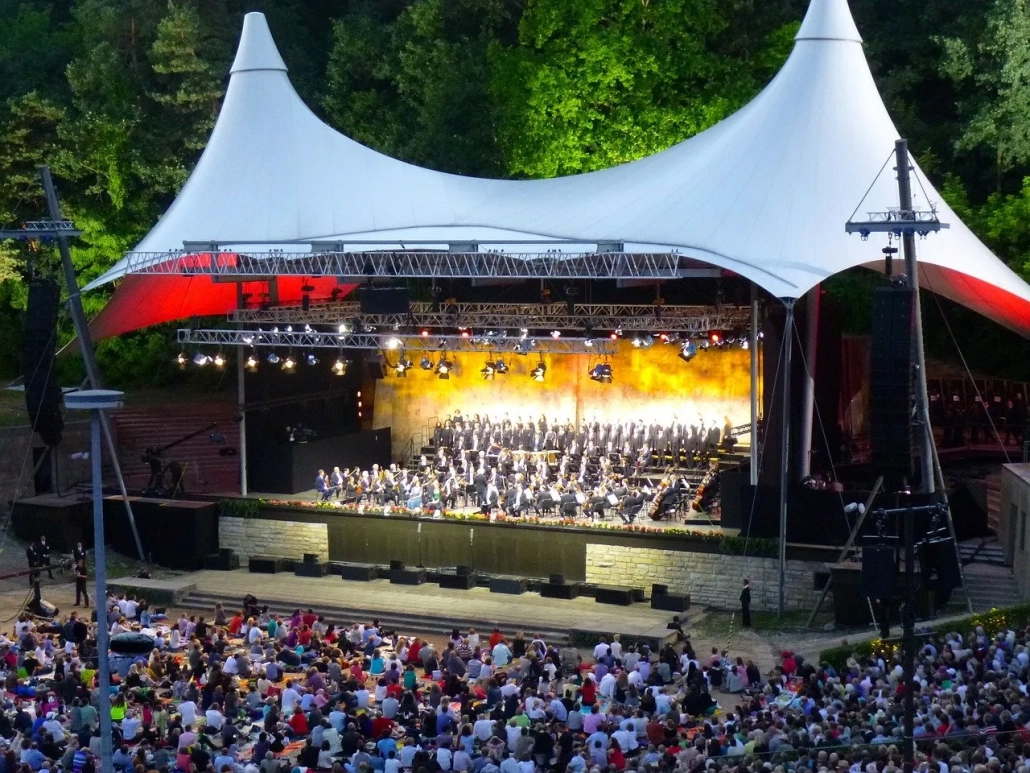
Why Backup Power Is Essential in Every Event
Ensuring continuous power at your event isn’t just about owning a generator or plugging in a UPS—it’s about implementing a complete strategy for redundancy, safety, and efficiency. Even the most experienced event planners can overlook critical details when it comes to power infrastructure. That’s why having a structured backup power management plan is essential to preventing disruptions and ensuring your event runs flawlessly from start to finish.
Below are five best practices Peak Audio follows—and recommends—to keep every event powered, protected, and professional.
7.1 Always Have a Power Redundancy Plan—Even If the Venue Says Power Is Stable
-
Never assume grid power is enough.
In Kenya, even the most prestigious venues in Nairobi, Mombasa, or Kisumu are subject to unexpected blackouts or voltage fluctuations. “Stable” power today doesn’t guarantee reliability tomorrow. -
Redundancy means having a secondary system in place.
Whether it’s a UPS, inverter, or diesel generator, you need a backup that kicks in immediately if the main supply fails—without causing delays, AV malfunctions, or safety hazards. -
Tailor your redundancy based on event type and power sensitivity.
For weddings, smooth audio and lighting are essential. For conferences, streaming continuity is critical. For concerts, audio and video must be uninterrupted. Your redundancy plan should reflect those specific needs. -
Document the backup strategy in your event production brief.
All stakeholders—AV teams, venue staff, and suppliers—should be aware of your fallback power sources, switchovers, and contacts in case of failure.
7.2 Ensure a Technician Is Available Throughout the Event for Monitoring
-
Power systems must be actively monitored during the event.
A technician on-site can identify load issues early, prevent overheating, and switch systems if needed—ensuring issues are resolved before they escalate. -
Technical support ensures professional oversight of both main and backup systems.
They monitor voltage stability, manage transition points, and confirm that surge protectors and AV equipment are running smoothly. -
Live troubleshooting avoids event interruptions.
If a UPS starts beeping or a generator runs low on fuel, your technician can act immediately—avoiding panicked phone calls or last-minute fixes. -
In large events, dedicated technicians may be needed for separate zones.
For example, have one overseeing the main stage and another assigned to breakout rooms or exhibitor booths.
7.3 Place Generators Away from the Audience to Reduce Noise and Fumes
-
Generator placement is crucial for guest comfort and safety.
While diesel generators are powerful, they emit both sound and exhaust. Improper placement can create noise pollution or even health hazards for attendees. -
Use long, shielded extension cables to allow remote placement.
Generators should be positioned far from entrances, dining areas, and presentation stages—ideally outside the event space, with secure barriers. -
Silent or super-silent models are preferable for intimate or indoor events.
These specialized units minimize sound disruption, making them ideal for weddings, AGMs, and religious functions. -
Proper exhaust ventilation is critical.
Even in outdoor setups, make sure fumes are directed away from crowds. Peak Audio ensures every generator is installed with safety, airflow, and accessibility in mind.
7.4 Use High-Quality Cables, Connectors, and Surge Protectors
-
Low-quality or worn-out cables are the number one cause of event power failures.
They can overheat, short-circuit, or fail under load—endangering equipment and guest safety. -
Industrial-grade connectors are designed to handle event-level power draw.
This includes IEC power connectors, waterproof cable ends, and correctly rated plugs that prevent overloading. -
Always include AV-grade surge protection.
Sensitive gear like mixers, cameras, projectors, and speakers can be damaged by even a minor power spike. Peak Audio uses surge protectors rated specifically for professional event equipment. -
Cable management is just as important as cable quality.
Power lines should be clearly marked, securely fastened, and hidden from footpaths or audience zones to avoid trips or accidental disconnections.
7.5 Conduct Full AV and Power Tests During Rehearsals or Setup
-
Never go live without first running a full-load power simulation.
Test every light, sound system, screen, and backup power unit exactly as they will operate during the event. -
Rehearsals reveal overlooked dependencies.
Does your UPS support the full load of your livestream kit? Is the generator pulling enough for lighting and air conditioning together? These questions can only be answered through live testing. -
Involve both AV and power teams in the test.
Cross-checking ensures that if one system fails, another is ready—and the two don’t interfere with each other (e.g., overlapping circuits or feedback loops). -
Monitor for timing, heat generation, and transition reliability.
How fast do systems switch when simulated outages are triggered? Do any screens flicker or amps cut out? This is where you catch and fix surprises—before they go public.
Backup power management isn’t just about owning equipment—it’s about strategic planning, expert oversight, and flawless execution. Whether it’s keeping lights on during vows or ensuring streaming doesn’t drop during a keynote, every detail matters. At Peak Audio, we build our power strategies into the heart of every event—from inspection and setup to monitoring and recovery. That’s how we keep your event powered, protected, and perfectly delivered—even when the unexpected strikes.
8. FAQs – Backup Power for Events in Kenya
Choosing the right backup power solution for your event can be challenging, especially with so many types of events, locations, and power needs involved. Below, we’ve answered the most common questions we receive at Peak Audio to help you make an informed and confident decision when planning power redundancy for your event.
8.1 Do I Need Backup Power for Small Indoor Events?
Yes—even small indoor events need a backup power plan. While venues may have access to grid power, outages can occur without warning. Something as simple as a brief flicker can affect microphones, lighting, projectors, or live streams. For small weddings, board meetings, product demos, or church services, a compact inverter or UPS can be the difference between a seamless presentation and a sudden blackout. Peak Audio always recommends a minimal backup solution, no matter the size of the event.
8.2 What’s the Difference Between an Inverter and a Generator for Events?
-
Inverters are quiet, clean, and automatic. They store energy in batteries and seamlessly switch on when power fails. Best for indoor, noise-sensitive, or short-duration backup (e.g., weddings, conferences, livestreaming).
-
Generators, on the other hand, are fuel-powered and capable of running heavy-duty systems like outdoor stages, lights, and catering equipment for extended hours. They require manual start-up (unless auto-switched) and are better suited for large or outdoor events.
In most cases, Peak Audio designs layered systems—where inverters handle instant backup and generators provide long-term power.
8.3 Can Peak Audio Help Me Source a Generator or Inverter?
Absolutely. Peak Audio partners with licensed, reliable power equipment suppliers across Kenya. Whether you need a 5kVA silent inverter for a private function or a 60kVA diesel generator for a festival, we’ll assess your requirements, recommend the best fit, and handle all sourcing, delivery, setup, and fuel logistics. You don’t need to worry about compatibility or capacity—we ensure everything works with your AV and venue infrastructure.
8.4 How Much Power Backup Is Enough for a Wedding or Concert?
It depends on the scale of the event and the equipment being used. Here’s a quick guide:
-
Weddings (50–300 guests):
At least a 5–10kVA inverter or a 10–20kVA generator to support sound, lighting, and video screens. -
Corporate conferences with projection/livestreaming:
10–15kVA backup systems minimum. -
Outdoor concerts or festivals (300+ people):
30–60kVA generator with multi-phase outputs, plus secondary inverter/UPS for critical gear like mixers or LED walls.
Peak Audio calculates your exact power needs based on your equipment list, duration, and venue. We provide full transparency on load expectations and redundancy options.
8.5 What If I Already Have a Generator—Do I Still Need UPS or Inverter Backup?
Yes, especially for sensitive AV equipment. Generators can take a few seconds to start or may experience voltage dips and surges. A UPS or inverter bridges that gap, providing instant, clean power to mixers, projectors, livestream kits, and other fragile electronics. This ensures no audio dropouts, screen flickers, or system reboots during a switch from main to backup power.
Think of it as a layered insurance plan: generator = strength, inverter/UPS = stability. Peak Audio integrates both into a cohesive system.
8.6 How Early Should I Book Backup Power Services?
We recommend booking at least 2–4 weeks in advance, especially during peak seasons (wedding months, holidays, school closing periods). This allows time for:
-
Site inspection and load assessment
-
Equipment reservation and testing
-
Coordination with your venue and suppliers
-
Pre-event rehearsals with power simulations
However, for last-minute needs, we do offer express deployment and emergency power solutions—depending on equipment availability.
8.7 Can You Provide Backup Power in Remote or Off-Grid Locations?
Yes. We’ve powered events in rural counties, coastal beaches, game lodges, and mountaintop retreats. Our mobile generator units and battery-powered setups are designed for mobility and durability. We’ll handle transport, terrain setup, and power distribution logistics—ensuring your event stays bright, amplified, and uninterrupted, no matter the location.
8.8 Is Backup Power Only for Big Events, or Can I Use It at Home?
Backup power isn’t just for large-scale events—it’s a smart option for home celebrations, home churches, online webinars, and even backyard weddings. Peak Audio offers compact and silent inverter systems that can power your laptop, router, microphones, lighting, and sound system without the noise or fumes of traditional generators.
Whether it’s a birthday livestream or a family send-off, you deserve uninterrupted celebration. We’ll tailor the power system to your scale and budget.
Backup power is not just a technical detail—it’s a safeguard against disappointment, delays, and damage. Whether your event is big or small, indoor or remote, Peak Audio ensures your power plan is solid, silent, and stress-free. Have more questions? Contact our team today and let us help power your next event with confidence.

Leave a Reply
Want to join the discussion?Feel free to contribute!